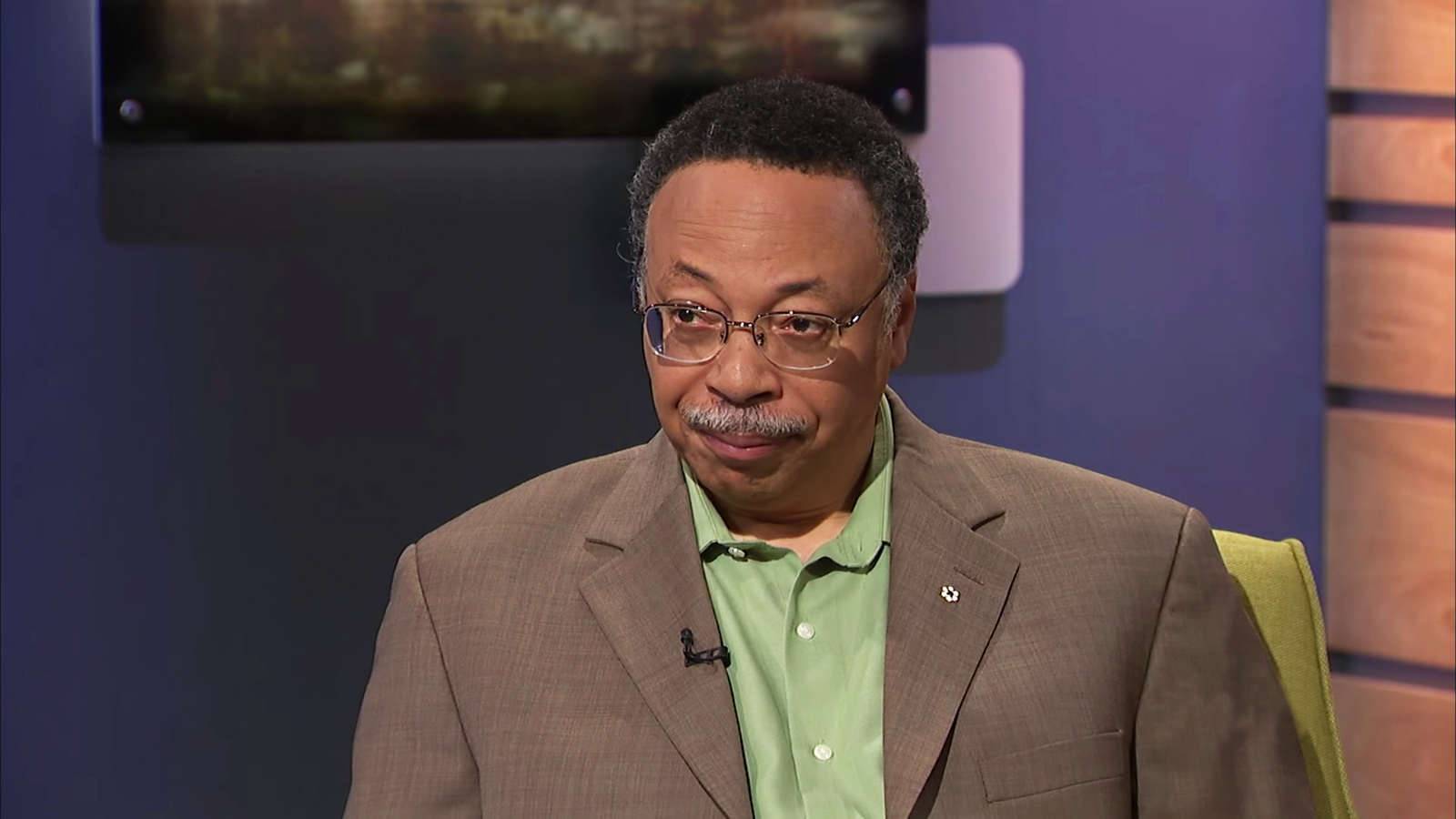Black excellence, social advocacy and literature with George Elliott Clarke and Mayann Francis

In the spirit of Black History Month, last week I had the chance to sit down with poet George Elliott Clarke who is currently a professor of English at the University of Toronto. Clarke has written extensively on the history of black Canadian communities which he calls Africadia.
He previously served as Parliamentary Poet Laureate in which he reflected extensively on the views of Parliamentarians and public policy. In addition to this he has written numerous bestselling works of scholarship which have shaped Black Canadian literature.
Clarke holds an honours BA in English from University of Waterloo, an MA in English from Dalhousie University and PHD in English from Queen’s University. In our conversation we discussed the meaning of Black History Month, his collection of work and advice to the next generation of black Canadians.
What does Black History Month mean to you?
Black History Month is an opportunity for all Canadians to think about the contributions of Black Canadians in Canada from enslavement to present.
How did you become a writer?
When I was 15-years-old I decided I wanted to become a songwriter, shortly after I decided I’d rather become a poet. I later enrolled in university to pursue my career ambitions.
What has made you such a successful writer?
I never doubted mixing literary creativity, social political activism and simple scholarship
Which of your works holds the most sentiment?
I like to think all are equally important and valid in their own unique ways. However Odysseys Hall: Mapping African Canadian Literature is particularly important to scholarship. Prior to the publishing of Odysseys Hall very few scholars viewed Black Canadian writing as a unique discipline.
What makes Black Canadian writing distinct?
Black Canadian writers are more elusive, cosmopolitan and playful than African American writers. They are less likely to define specific themes in their works. In addition, African American writers are a core community of Americans partially by choice and racist design.
As a result, they will reflect the values and experiences of slavery, segregation and equality. Whereas Black Canadian writers are restricted to specific cities and therefore have less context for chronicles and narratives. This can largely be attributed to the fact that African Americans consist of 35,000,000 people in total. Whereas the Black Canadians consist of 500,000 people of varying immigration experiences and only consider themselves black in a minoritized context.
What should the next generation of black Canadians strive for?
It’s important to ensure black youth are educated right up to university. A mind is a terrible thing to waste. In addition, it’s important that we don’t downplay social issues in which racial and cultural misunderstanding may have a role.
To commemorate Canadian black excellence in social advocacy I had the chance to sit down with Mayann Francis, who served as The First African Nova Scotian Lieutenant Governor from 2006-2012.
Francis has had a distinguished career in public service in both Canada and The United States. In addition, she currently serving as The First Distinguished Public Service Fellow at Dalhousie University’s School of Public Administration. In the midst of her busy schedule she was pleased to talk with The Cord.
What’s your background?
I was born in Whitney Pier, Cape Breton, Nova Scotia to a Cuban father and Antiguan mother.
Whitney Pier was and is an extremely multicultural environment, and it was this upbringing which gave me the foundation for unity and acceptance of others.
The parents in Whitney Pier always put an emphasis on education and hard work. It was these basic values which carried I’m on a journey of excellence.
I initially started working as a X ray technologist, earned a BA from St. Mary’s University and worked under George McCurdy at The Nova Scotia Human Rights Commission.
I moved to New York and worked as a Paralegal in Wall Street and Midtown Manhattan for 16 years.
In addition, completed a masters of Public Administration at New York University. I returned to Canada and worked in The Ontario Public Service before being appointed CEO of The Nova Scotia Human Rights Commission.
What was your highlight as Lieutenant Governor?
The pardoning of Viola Desmond
What does Black History month mean to you?
Having a focus on black history highlights the significance of what black people have done to build the country — in addition shines light on atrocities of the past. Looks to make society better for everyone.
In addition, it highlights and educates everyone, education is important in understanding society.
Who was your biggest role model?
Family was important! Family emphasized education. Black people seen in the states became role models. In addition, Beverly Mascall was a huge role model.
What`s the biggest piece of advice you can give to the up and coming generation of Black Canadians?
Never give up hope, always have faith and you are tremendously important. Pay homage to the people who paved the way. Be strategic about your future, map out your future in five year increments.
Always be excellent in what your doing, give those behind you a hand up. In addition, Black Lives Matter was not intended to be exclusive, not that nobody else’s life is important, it`s the fact that our lives (Black Canadians) lives matter too.


